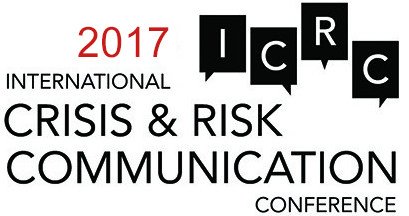
Senior Vice President
Access Consulting
United States
Arlyn Rivera Elizée is one of a few bilingual emergency management consultants and trainers in the country. Day by day, the need to expand emergency management trainings, information and risk communications to the Latino and bilingual populations is becoming quite urgent, especially with the increasing risk of epidemic/pandemic outbreaks such as with the ebola epidemic in West Africa. Her background of more than 15 years as a public health and bilingual social marketing and communications consultant, who worked on various national and international public health campaigns with the CDC, the Robert Wood Johnson Foundation and other foundations and programs, has helped her to identify the need and expand into the field of emergency management. She holds a Master’s Certificate in Emergency Management from the Emergency Management and Homeland Security Program at Florida State University (FSU) Center for Disaster, Risk and Policy.
She is also trained in the newly emerging use of social media in emergency response and risk communications as one of the first Social Engagement Interns at the new and nationally recognized Digital Operations Center, of the American Red Cross National Headquarters in Washington, DC. Since then, she has had boy/girl twins, which has added new meaning to “emergency management” for her.
2015
Pre-Conference Workshop
“Emergency Communication Effectiveness”
Features discussion on Multi-language Emergency Alerting Issues, to include co-presenters:
Arlyn Rivera-Elizée, Access Consulting, Washington, DC, USA
Federico Subervi, Professor, Kent State University, Ohio, USA
Tony Morejon, Hispanic Affairs Liaison, Hillsborough County, Florida, USA
The capability to provide effective, appropriate disaster alerts during major, sudden or logistically complex disasters involves prior advance planning to ensure that notifications can be delivered and understood rapidly and effectively by diverse audiences, and by individuals who will be experiencing heightened or prolonged stress.
This presentation outlines the stages of crisis and the crisis-stress factor, which may significantly impact human cognitive functioning. Types of specific informational needs at each crisis stage will also be outlined, and other considerations for effective message construction and delivery will be discussed. The phenomena of “first language reversion during crisis,” reported by a number of bilingual or multilingual individuals who have experienced crisis stress, will be recounted.
In the U.S. citizenry, growing multilanguage populations, including those with limited English proficiency, challenge the feasibility of providing effective emergency alerts during major widespread disasters. Recent crises such as Hurricane Sandy and other disasters have shown significant vulnerabilities in this area, in terms of effectively reaching all audiences with proper messages, especially when individuals become displaced, power is lost, and crucial messages simply must be received and understood.
Crisis and risk communication professionals such as public service providers, national and local broadcast professionals, and legal experts weighed in with the Federal Communication Commission earlier this year with concerns and issues on this complex topic, initially raised as a result of tragic implications during Hurricane Katrina. Many questions and challenges remain.
Appropriate language and vocabulary choice, as well as possible cultural contexts will be shared, along with several other foundational strategy suggestions for creating better emergency messages.
Participants in this workshop will form case study-based discussion groups, wherein they will collaborate regarding what tools and techniques they use, under which conditions, in order to effectively analyze audience demographics, prepare messaging strategy, and otherwise optimize their emergency messaging communication effectiveness.
Multilanguage Emergency Alerting: Firsthand Experiences from the Frontlines
Tuesday, March 3rd, 1-1:30 p.m., Cedar Key
The ability to quickly provide accurate and effective emergency alerts in multiple languages is a challenge of increasing urgency in the United States and other regions worldwide.
This presentation by a uniquely qualified and experienced, 15-year multilingual/multicultural messaging expert discusses related issues she observed firsthand on the front lines of risk and crisis communications for such agencies as the Red Cross, National Institutes of Health, and the Centers for Disease Control. The emerging significance and utility of access to social media resources during disaster will also be discussed.
2013
Breakout session: Social Media Use During Hurricane Season 2012 #Sandy
The increasing use and usefulness of social media and its metrics in emergency management, disaster response and crisis and risk communication is wonderfully illustrated in the American Red Cross’ fairly new Digital Operations Center, which was launched in March 2012. Hurricane Season 2012, including #Sandy, is an interesting case study of comparisons and the increasing use and role of social media in disaster response as graphs, charts and sample tweets will show. Some social media metrics on the Philippines Flood in August will be presented for an international comparison.


